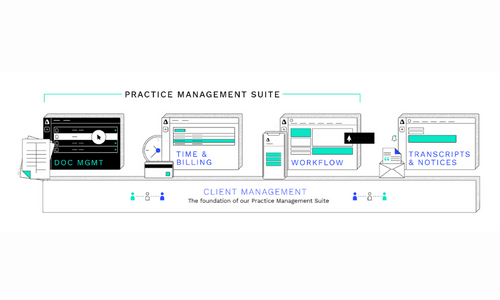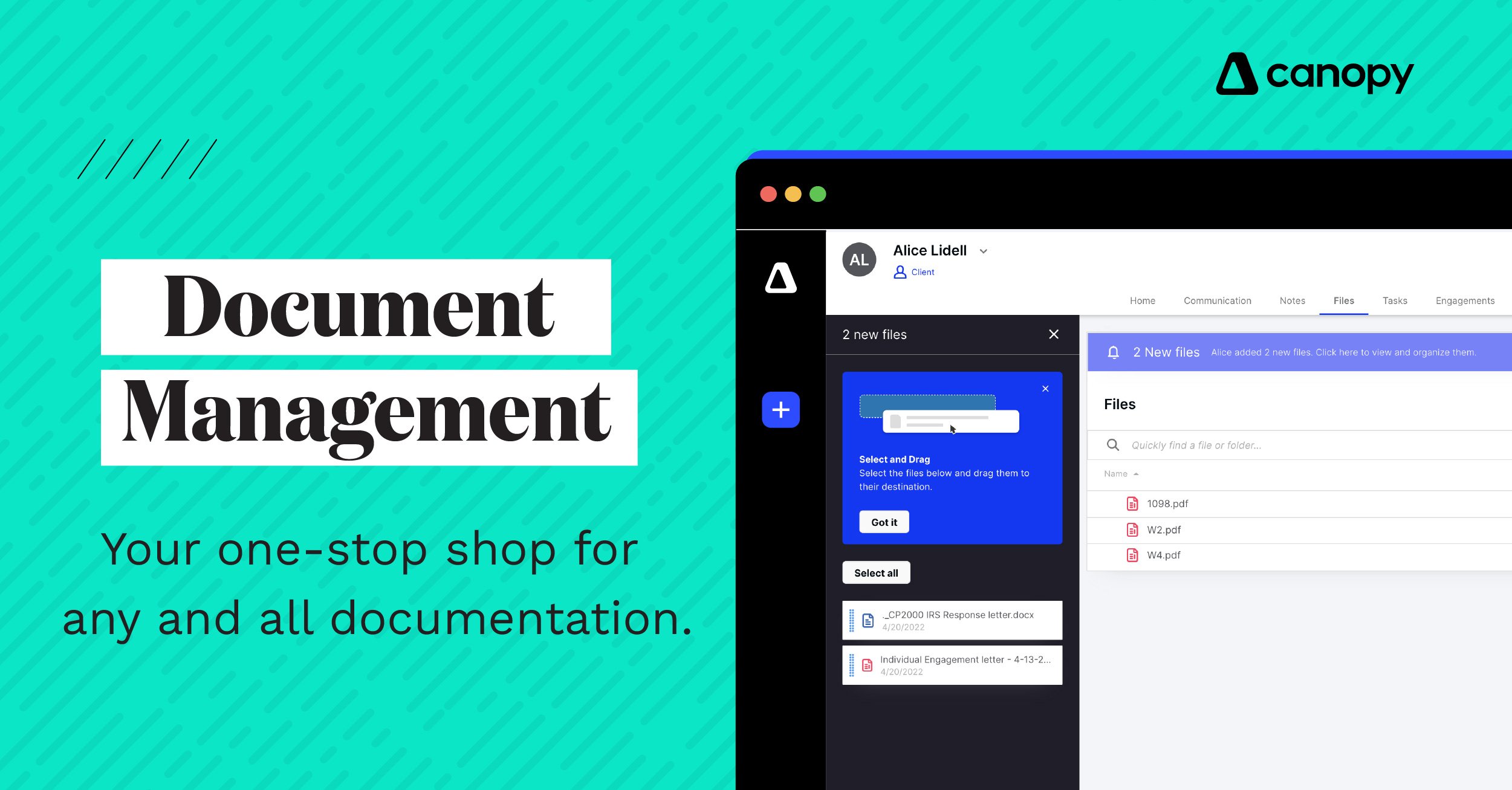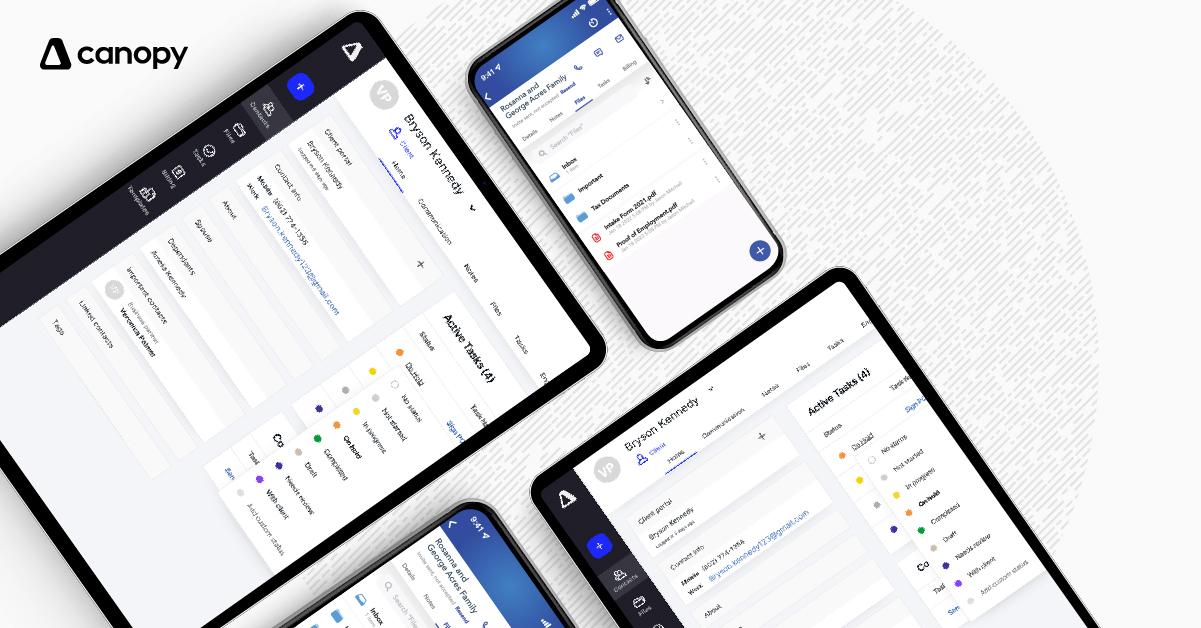A sharp, well-organized document management system benefits your accounting firm in important ways. An upgraded, industry-leading document management system will bring 3 massive benefits to your firm and its accountants, including:
-
-
- Better workplace environment
- Increase in ROI
- Protections against common threats
-
Let’s take a closer look.
Broken processes lead to employee turn-over
Is it really possible that an employee would leave you for greener pastures because your firm has a crappy way (not the technical term, of course) of handling client documents?
Believe it or not, the research says yes.
Consider the following discoveries from a recent survey of 1000 full-time U.S. employees across multiple industries and departments:
-
-
- Of the 1000 employees surveyed, nearly half of them say that the way their company handles important documents is broken.
- Of those actively looking for new employment (roughly third of those surveyed), a whopping 86% said that broken processes are a big part of their decision.
-
-4.jpg?width=800&height=501&name=www_getcanopy_comhubfsshutterstock_601201364%20(1)-4.jpg)
Since accountants work almost entirely with documents, we can expect these numbers, and the conclusions we draw from them, to be even more acute. No matter how you slice, dice, or mince it, the bottom line is something like this:
Smooth business translates into happy employees. And happy employees are more likely to stick around.
Nothing wrong with those two statements, eh?
Don’t get the wrong idea. Paying your employees lots of money can also make them want to stay with you. So can outfitting the drinking fountains to serve chocolate milk. But just the simple act of implementing a solid document management plan will make your firm a more appealing place to work and encourage employee retention. And that’s not made up. It’s in the data.
Advice: Start with the simple things. Work on the chocolate milk thing later.
Effective document management saves you time and money
Retaining your accounting talent (through better document management) saves you time and money. We said that already. But there’s another angle to it, one that likewise comes from the nerds in lab coats.
Behold: A recent study says that shuffling through the right drawer or cabinet or folder for the right document burns an average of 9 hours per week, per employee.
How someone actually conducted this study we’ll probably never know. But for an accountant making, say, $30 an hour, that’s over a thousand dollars a month to look through drawers!
And also this: Your average employee takes 18 minutes to locate a paper document.
It all depends on how many documents that employee searches for each day, but according to the science, that’s about 69 days a year, without any lunch breaks, wasted.
(It’s bad enough that you make your employees rummage through drawers like that for the entire gestation period of a Bernese Mountain Dog, but did you have to take away their lunches too?)
This next part is probably pocket change in comparison to the amounts of money already lost, but think of all the $$$ a paper-heavy firm spends on, toner, ink, envelopes, staplers, staples, postal fees, and copy machine maintenance.
Going digital won’t be free. But don’t look at it as an added expense either. Consider instead all the random expenditures you’re replacing (see above) and inefficient processes you’re correcting.
Suddenly you begin to see document management for your accounting firm as the critical investment that it is, and one that you can’t afford to miss out on.
“But since the pandemic all my employees are working from home anyway,” you say. “I went to the office last month and the copy machine had a layer of dust on it half an inch thick.”
All the more reason to make sure your employees are unified in their approach to document management—putting important information in an easy-to-find, easy-to-use online location where everyone who needs it can quickly access that information and get their work done.

The right document management system keeps your accounting firm’s documents secure
Here’s a line that could be published in News of the Weird: during the pandemic, some firms were mailing physical filing cabinets back and forth between accountants.
Not only is a transaction like that incredibly inconvenient and expensive—in terms of security, it’s also incredibly dumb. You should know where your firm’s most important documents are at all times—and you should know who has access to them.
Do you have a physical vault at your office with a heavily bearded security guard standing at the door and an equally heavily bearded administrator who makes people sign in and sign out whenever they walk in the door? (The beards make them look more legit, that’s all.) If not, you shouldn’t be storing physical documents. That’s just straightforward commonsense.
Do your accountants email important documents back and forth to each other in personal emails? Unless your firm is equipped with the latest and greatest in email encryption, this is just as risky and foolish as dealing with physical documents.
The solution in either case is to invest in an industry-leading document management system. A leading document management system puts everything in the same place (online, of course), controls who accesses it, makes sharing and collaboration easy, and protects the information from the bad guys.
The times they are a changing. A few years ago, you may have gotten away with sloppy document management.
Today, you’ll get your lunch eaten without it (and possibly sued).

What peach baskets, manila folders, and even your personal email have in common
When James Naismith, blesséd man, invented the game of basketball the winter of 1891, he used two peach baskets as hoops that the players tried to throw the ball into. The fact that the hoops were 10-feet up in the air was completely random: that’s how high the bottom of the upstairs balcony was in the gymnasium where the first game was organized.
Basketball has evolved since then. In fact, you might say it’s hardly the same game. Ask Mr. Naismith what a windmill dunk is, or a 3-pointer, or the UTEP 2-Step. He wouldn’t have known.
Certain aspects of accounting practice are the same way. If your idea of document management is, “Pass me that folder, will you?” you’re about 10 (cough, 30) years behind the times, which, in technology, is like two millennia.
Don’t feel bad. You’re committed to building the best firm possible or you wouldn’t be reading this article. And don’t feel overwhelmed. Upgrading your document management system is easier than you think—and doing so will bring massive rewards to you and everyone who works for your firm.
For more ideas, check out Canopy’s main page on document management.
.png)
Dave Nielsen lives in Salt Lake City. He holds a PhD from the University of Cincinnati and writes regularly about business and healthcare.
READ MORE BY Dave







Get Our Latest Updates and News by Subscribing.
Join our email list for offers, and industry leading articles and content.